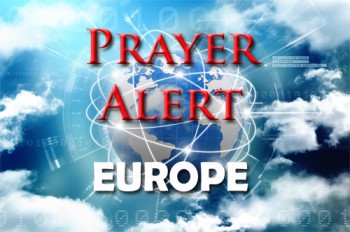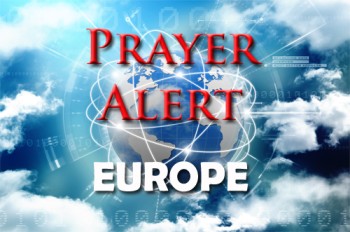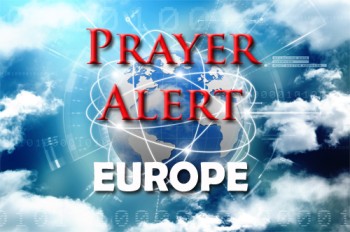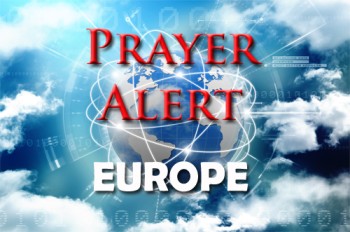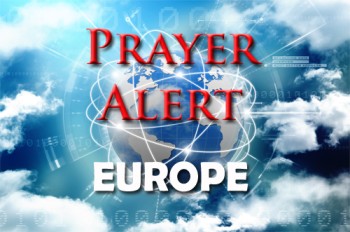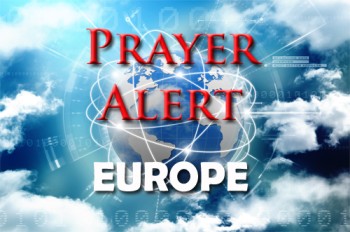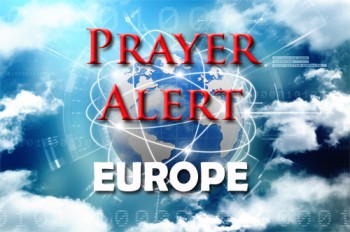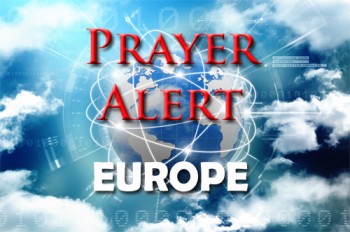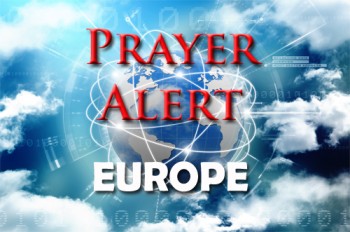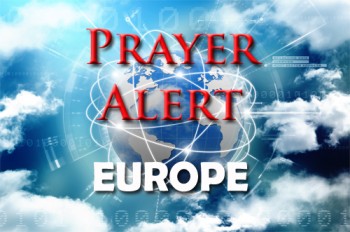Displaying items by tag: Germany
Germany: Rhine drying up
Swathes of the Rhine riverbed are exposed, while a few commercial vessels slowly navigate the channel of water that is left in one of Europe's great working rivers. Industry relies on barges to fetch and carry raw materials and finished products to and from the power plants and factories that line the riverbank. Germany’s main industry lobby group has warned that factories may have to limit production or halt it completely because plunging water levels on the river are making it harder to transport cargo. The water is already too low to allow some of the larger vessels through. Others have reduced their cargo to lighten the load so that they sit higher in the water. Experts warn that the low water could significantly damage Germany's economy.
Germany: permanent gas pipeline cut?
Russian natural gas supplies to Germany have been halted for annual maintenance work. But the German economy minister warned that EU countries must be prepared for gas shipments not resuming, believing Russia is using gas ‘as a weapon’ in response to EU sanctions. Supplies to five European countries have already been cut over their refusal to comply with new payment schemes. Stopping supplying Germany could tip the country into a major recession. Entire industries rely on gas, and most German homes use it for heating. The head of the International Energy Agency has warned that Russia may cut off gas supplies to Europe entirely and that Europe needs to prepare now.
Germany: Gang plans civil war conditions
German police have detained four people accused of plotting to create ‘civil war conditions’ and eventually overthrow democracy. United Patriots are part of Citizens of the Reich. They reject the German state as illegal. They intended attacking substations and power lines to destroy Germany’s energy infrastructure and cause long-lasting nationwide power failures. A number of high-profile people were also targeted as potential kidnap victims. One of the targets said, ‘There are forces that intended to destabilise the state and democracy. They are a small minority but are highly dangerous.’ The movement has an estimated 19,000 members who also spread racism and misinformation. (See) They were arrested on April 13 police also seized numerous guns including Kalashnikov, gold bars and cash in euros and foreign currency totalling £16,600. They went before a judge on April 14. A fifth suspect remains at large. Investigators have identified 12 people also connected to the group, which used the Telegram messaging app to communicate.
European shuttle diplomacy
On 7 February President Macron travelled to Moscow and then to Kyiv, to meet the presidents of Russia and Ukraine and seek a diplomatic solution to the crisis. At the same time, German chancellor Olaf Scholz was in Washington aiming to convince Joe Biden to trust him despite being wishy-washy on Russia. On 10 February Boris Johnson went to Brussels. In the week beginning 14 February, Scholz will meet Vladimir Putin himself. Despite Scholz’s doveish approach to Russia threatening European unity, France, Germany, and the US are still allies. Many believe the scenario of Macron keeping Scholz and Biden out of the loop on his talks with Putin and Zelensky is as unlikely as the German chancellor cutting a deal with Biden behind Macron’s back.
Germany: navy chief resigns
The head of the German navy, Kay-Achim Schönbach, made controversial comments while speaking at a think-tank. On a video later published on social media, he said Putin would not invade Ukraine and needed to be treated as an equal by the West. Also the Crimean peninsula, which Russia annexed in 2014, ‘is gone and will never come back’. Ukraine described Mr Schönbach's comments as ‘categorically unacceptable’. He resigned from his role to ‘avert further damage’. Putin wants the West to stop Ukraine joining NATO, and NATO to abandon military exercises and stop sending weapons to eastern Europe, saying these are a direct threat to Russia's security. Several NATO members are sending military equipment or deploying forces to Ukraine. Germany refuses to send weapons, and Ukraine’s foreign minister said this stance encourages Putin to attack.
Germany: Ahr valley region reconstruction
The flood disaster in the Ahr valley was three months ago. Much has been achieved but reconstruction will take a long time. Many houses had to be demolished and over thirty may not be rebuilt. Houses that could remain standing have been completely cleared and left empty to dry out. Large parts of the natural gas network were destroyed, and many oil heating systems in the affected houses no longer work. The government is working flat out to find solutions to the problems and to be prepared for the upcoming winter - including providing mobile gas supply systems and oil tanks, the use of mini-power plants and the purchase of a Tiny House for residents who need accommodation for the winter due to a lack of heating. The electrical power supply has not yet been completely restored and there is a lack of craftsmen and building materials for the renovation and reconstruction work. See
Germany: anti-Semitism at football match
UEFA are investigating Union Berlin after shocking acts of anti-Semitism took place during a match with Israel’s Maccabi Haifa football team in a Nazi-built stadium. Before the game Maccabi players laid a wreath at Berlin’s Holocaust memorial. During the game a Jewish group of fans were subjected to anti-Semitic abuse and assaulted in the mixed area of the stands where fans from both teams sit together. They were threatened, pelted with beer, insulted, and one fan tried to set fire to an Israeli flag. UEFA said that an ‘Ethics and Disciplinary Inspector’ has been appointed to conduct a disciplinary investigation regarding discriminatory incidents. Police are also investigating the antisemitic abuse, which included other incidents around the stadium. Club president Dirk Zingler said, ‘This latest display of anti-Semitism, in a place so iconic for the Nazis, shows there is still work to be done to stamp it out in German society.’
Germany: changes in leadership
On 26 September voters elected the Bundestag's parliamentary seats. The dominant political parties - SPD, CDU and CSU - finished only ten seats apart. Angela Merkel’s departure has opened up a large void. Many older MPs have been replaced by people in their thirties or even twenties. This rejuvenation will bring many openings for renewal and innovation in the current technological and global transformation, but will also pose potential risks that need prayer. Will Germany manage to keep its leadership in Europe, or will France supplant it? What can the EU expect from the new Chancellor and coalition on climate change, trade, and technology? How do the elected candidates see Europe’s place in the world? What will the results mean for Germany’s relationships with France, the USA, Russia, or China?
Germany: explosion at chemical site
Two people are dead, five are missing, 31 injured and five in intensive care after an explosion at a German chemical site. The blast in Leverkusen had been declared an ‘extreme threat’ after sending a large black cloud rising into the air. Emergency services took three hours to extinguish the fire at the Chempark site. Police asked nearby residents to remain in their homes and keep windows and doors shut. Playgrounds in nearby neighbourhoods were closed and residents told to rinse fruit and vegetables from their gardens before eating them. Chempark ‘s chief said, ‘Hopes of finding the missing alive are fading. Solvents were burned during the incident, and we do not know precisely what substances were released. We are examining this with authorities, taking samples.’ The explosion was at a rubbish incineration plant of the chemical park. The smoke cloud is moving toward the towns of Burscheid and Leichlingen.
Germany, Belgium, Holland: rescue, finance, and prayers
The death toll from flooding in Western Europe keeps climbing as rescue workers dig deeper into debris left by receding waters. Germany’s finance minister has proposed a package of immediate aid, of more than 300 million euros. Pray for the government also to dig deeper into available funds so that suitable rebuilding programs can be set up speedily. From experience with previous flooding, costs will be in the billions of euros. Police fear the number of dead may still rise in many areas. Pope Francis offered a prayer for the flood victims and for the efforts of all to help those who suffered great damage: ‘I express my closeness to the populations of Germany, Belgium and Holland, hit by catastrophic flooding.’ German officials have asked people not to make any more donations, as their generosity has left storage facilities for clothes and food full.
